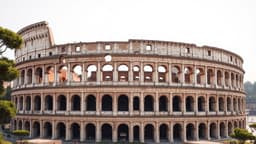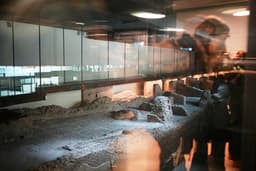Home / Science / Elon Musk Backs Digital Renaissance of Ancient Rome Archaeology
Elon Musk Backs Digital Renaissance of Ancient Rome Archaeology
11 Nov
Summary
- London researchers reconstruct 1,800-year-old Roman frescoes
- Musk donates $1 million to American Institute for Roman Culture
- AI could help "write a new history book" on ancient Rome

In a significant archaeological discovery, London researchers have reconstructed a large collection of 1,800-year-old Roman wall plaster, revealing intricate frescoes that once decorated a high-status building. Meanwhile, Elon Musk is investing in a digital renaissance of ancient Roman studies.
The Tesla CEO recently donated $1 million to the American Institute for Roman Culture (AIRC), a non-profit based in the U.S. The funds will support AIRC's Ancient Rome Live platform, which aims to document and preserve Roman heritage as part of its Expandere Conscientiae Lumen initiative.
Musk, who has long expressed interest in ancient history, believes AI could help "write a new history book" on Rome by filling knowledge gaps through the analysis of ancient materials and archaeological findings. While the AIRC has not shared specifics on how AI will be incorporated, historical researchers have used machine learning for tasks like translating texts and digitally mapping ancient structures.
The AIRC has hailed Musk's donation as a "pivotal moment" for its mission of fostering global understanding and appreciation of the Roman world through education, research, and innovation.




